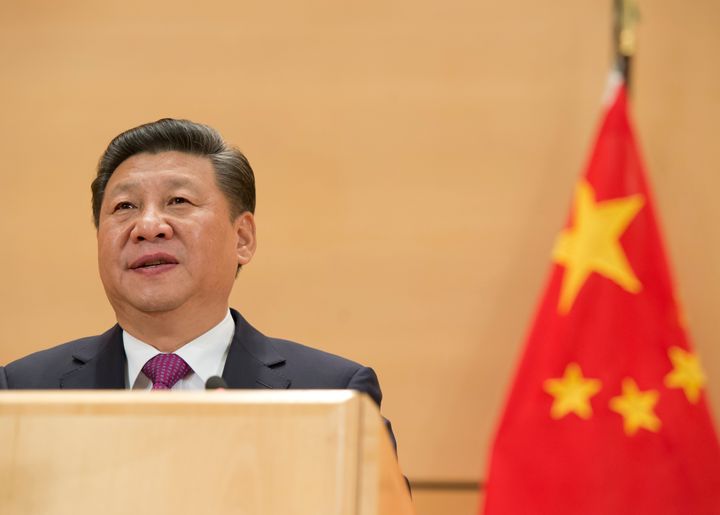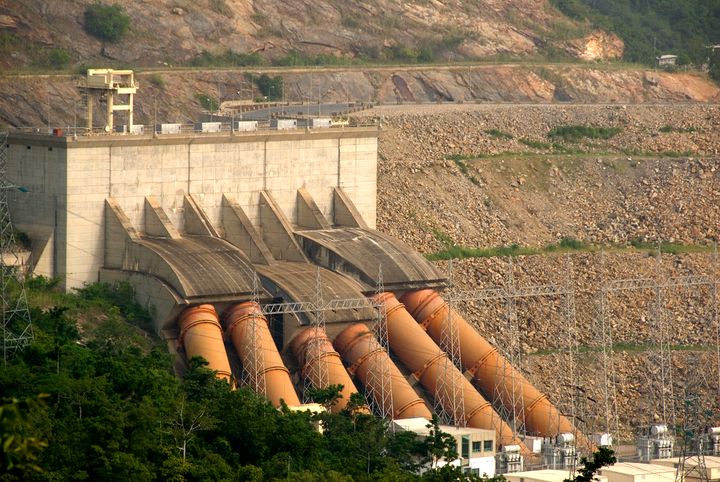Landmark Deal Sees French TotalEnergies Sell LNG to China in RMB

The Lede: Chinese and French energy firms recently signed a landmark deal in China that involved the purchase of 65,000 tons of liquified natural gas (LNG) from the United Arab Emirates, settled in RMB (Chinese Yuan) instead of U.S. dollars. This transaction represents a significant move by Beijing to challenge the U.S. dollar's status as the universal currency for the gas and oil trade.
What we know:
- China National Offshore Oil Company (CNOOC) and TotalEnergies, a French multinational integrated energy and petroleum firm, have signed their inaugural agreement using the Shanghai Petroleum and Natural Gas Exchange (SHPGX) platform, which was established by China to promote its currency in the trade of its hydrocarbon imports and exports.
- TotalEnergies told the French weekly newspaper La Tribune that the transaction in RMB was “a demand from CNOOC.” The largest offshore oil and gas field operator in China said utilizing the yuan for global resource procurement could encourage the expansion of energy trading on a global scale and establish a more varied ecosystem, considering that in the hydrocarbon market purchases have long been sealed in dollars.
- During a visit to Riyadh in December of last year, Chinese President Xi Jinping proposed that the Shanghai Petroleum and Natural Gas Exchange should serve as a platform for conducting yuan settlements of oil and gas trades between China and the Arab Gulf nations.
The background:
Beijing has been trying for years to enhance the significance of its currency in the worldwide markets and contest the dominance of the U.S. dollar in international trade, with a specific focus on the energy sector. The establishment of the Shanghai International Energy Exchange (INE) in 2013 which allowed for the trading of oil futures contracts denominated in yuan, was part of the effort. The exchange is focused on energy products such as crude oil, natural gas, and petrochemicals, and allows for both domestic and foreign participation. An important aspect of INE is its role in promoting the use of the Chinese currency in energy trade and providing an alternative to the traditional use of the U.S. dollar.
China has also signed currency swap agreements with many countries, including Russia, Japan, and Australia, which allows for the direct exchange of their currencies without using the U.S. dollar as an intermediary. China has also has been promoting the use of the yuan in international trade through projects like the Belt and Road Initiative. The most recent example is Pakistan which has been taking the lead as one the first countries to use RMB in international trade. Earlier both Russia and Brazil reached agreements with China to conduct trade in RMB in the midst of Beijing’s efforts to internationalize its currency and reduce dependence on U.S. dollars.
In recent years, China has witnessed significant growth in trade settlement and investment denominated in yuan. Last year, yuan-denominated commodity trade settlements rose by 37.3%, year on year, to 7.92 trillion yuan ($1.15 trillion). Meanwhile, direct investments settled in yuan increased by 16.6%, year on year, to 6.76 trillion yuan in 2022, according to the South China Morning Post.
Likely outcomes/Takeaway:
- Beijing's long-standing efforts to enhance the significance of its currency in worldwide markets and challenge the U.S. dollar's hegemony in international trade, especially in the energy sector, are becoming increasingly evident. The recent deal with TotalEnergies marks a significant step in this direction.
- It will take time for the RMB to become a more widely accepted currency in international markets. As of now, the Chinese yuan only accounts for 2.7% of the market, with the U.S. dollar claiming over 41% of the share. Also, the yuan is still not as freely convertible as the U.S. dollar or euro, which means that there are some restrictions on how it can be exchanged or used in international transactions, limiting its use in overseas markets. Beijing maintains strict capital controls, which means that the government regulates the inflow and outflow of capital in and out of the country. This helps China to maintain stability in the financial system and prevent excessive speculation, but it can also become a burden in the “de-dollarization” process.
- Ultimately, the success of China's initiatives to promote the use of the yuan in international trade will depend on a variety of factors, including the willingness of other countries to adopt the currency and China's ability to maintain economic stability and growth. And some analysts think that’s a likely scenario.
Quotables:
- "China will continue to import large quantities of crude oil from Gulf countries, expand imports of liquefied natural gas, strengthen cooperation in upstream oil and gas development ... and fully use the Shanghai Petroleum and National Gas Exchange as a platform to carry out yuan settlement of oil and gas trade." – Xi Jinping.
- “In the short term, such “de-dollarisation” reflects cracks in the U.S. dollar-dominated international monetary system amid geopolitics.” – Huang Yadong and Zhang Wenlang with China International Capital Corporation, a leading Chinese investment bank wrote in joint research.
Good Reads:
China’s yuan makes Brazilian inroads, as ‘de-dollarisation reflects cracks’ in US currency settlements (The South China Morning Post)
TotalEnergies delivers LNG paid in yuan to China, a first (La Tribune)
'Petrodollar' at risk as TotalEnergies sells LNG to China in yuan (Radio France Internationale)



